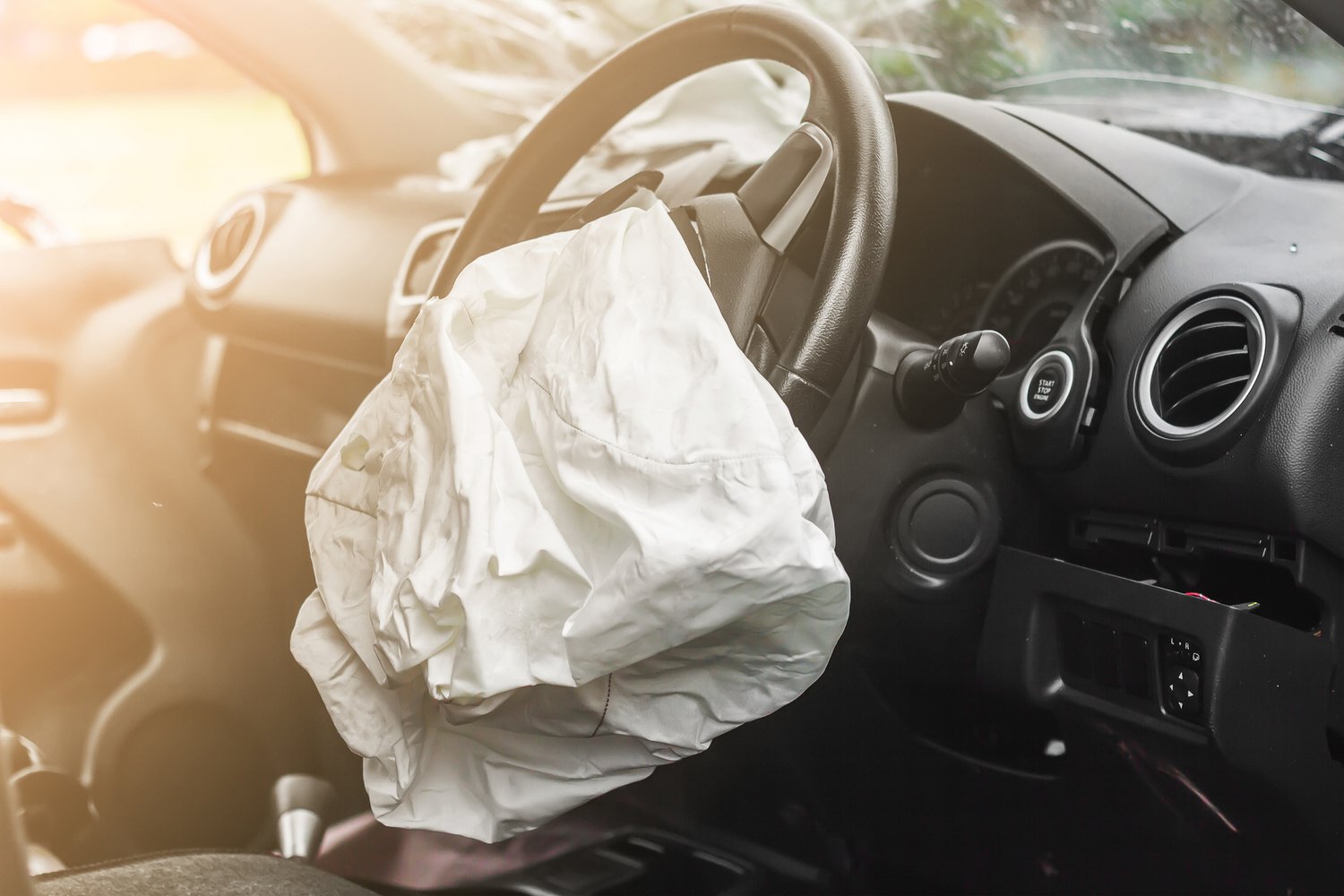What are the consequences of being in an accident without insurance?
Once again, it depends on fault. Sometimes assigning blame is rather obvious, and other times, it’s a tad trickier. For instance, it’s possible to be partially at fault. But to make things simple, one driver will likely be more responsible than the other. Below are the two most common scenarios.
If you’re at fault:
You could experience a range of significant consequences, including:
- Fines: You’ll likely have to pay a fine, and the penalty can be steeper depending on the accident’s severity.
- Jail time: In most cases, a single violation won’t result in jail time, but multiple instances of driving without insurance may.
- Legal fees: If you can’t pay for the other driver’s losses, they may sue you for damages, including legal fees.
- License suspension: Your state will probably suspend your license or revoke it if you’ve been caught driving without insurance multiple times.
- Medical costs: If the other driver, their passengers or a pedestrian was injured, you would likely need to pay for their medical bills. Hopefully, your health insurance will cover your injuries.
- More expensive insurance: Insurance companies see drivers with a history of accidents and coverage lapses as higher risk. As a result, a high-risk driver will pay more for car insurance than the average driver.
- Property damage: You are responsible for paying for any damaged property, such as other vehicles, light poles, mailboxes, etc.
- SR-22 or FR-44: Your state may require you to file an SR-22 or FR-44 form with the DMV. The paperwork is readily available from your insurance company when you buy a policy that proves you have coverage.
- Vehicle impounding: The law enforcement officer may decide to have your car towed away from the scene for uninsured driving.
- Wage garnishment: If you can’t afford to pay the other driver’s damages, they may seek deductions from your paycheck until the debt is paid.
If you live in a no-fault state, you’ll likely avoid a lawsuit for the other driver’s medical expenses unless it was an extremely severe accident. Why? In no-fault states, each driver must seek compensation from their own insurance company for injuries.
If the other driver is at fault:
Lack of insurance might still pose problems for you even if you didn’t cause the accident (for example, you’re rear-ended). You still may face the following issues:
- Fines: Your state may require you to pay penalties for uninsured driving regardless of fault.
- License suspension: Even without causing the accident, your license will probably be suspended for driving without insurance.
- Vehicle impounding: The officer on the scene can choose to have your car towed.
If you live in a “No-Pay, No-Play” state, you could still be required to pay for your medical injuries and property damage. Furthermore, in the dozen or so “No Pay, No Play” states, you are limited in how much you can recover for losses. The state may forbid you from suing for “pain and suffering” or “non-economic” damages.
The thinking behind “No-Pay, No-Play” laws is that drivers who don’t buy insurance shouldn’t receive benefits from those who do.



